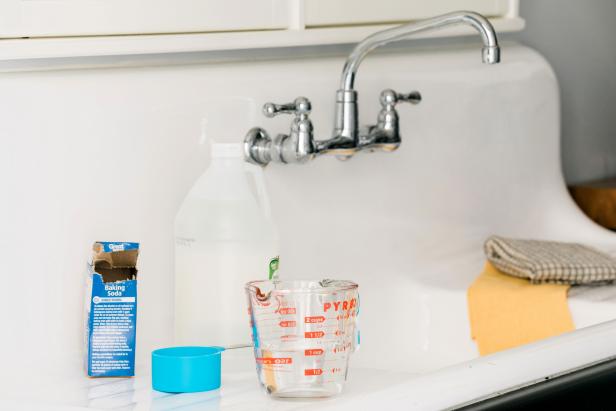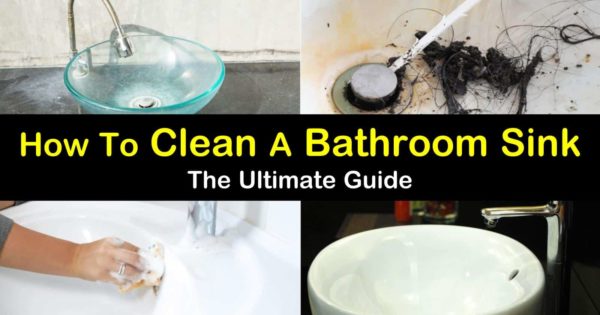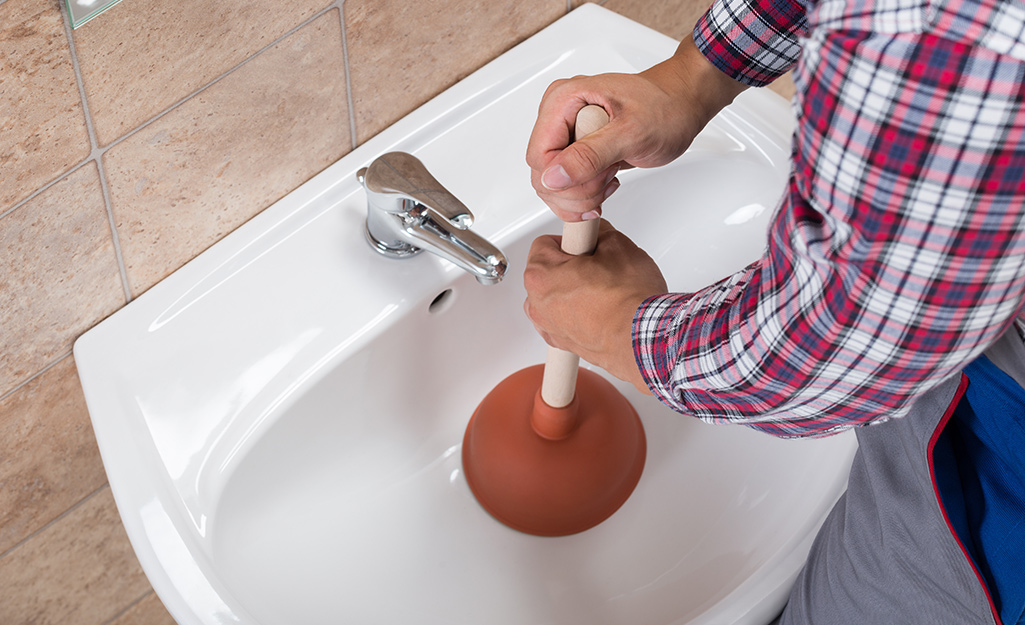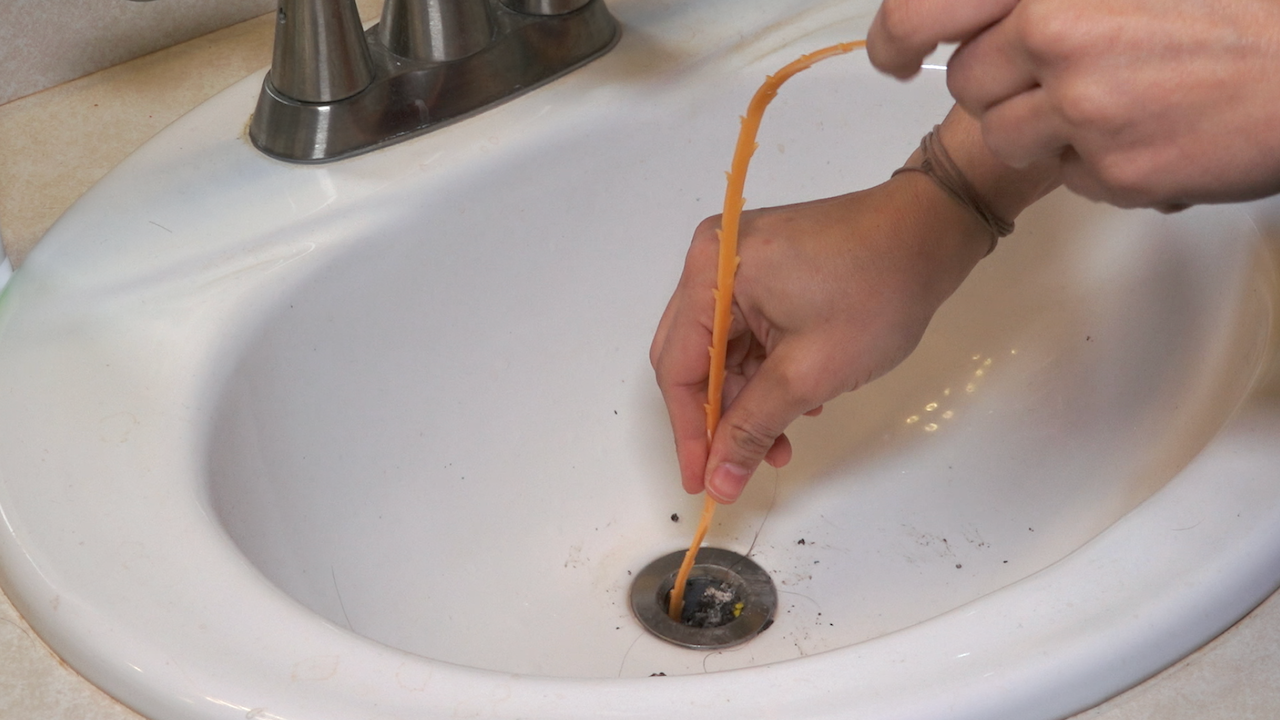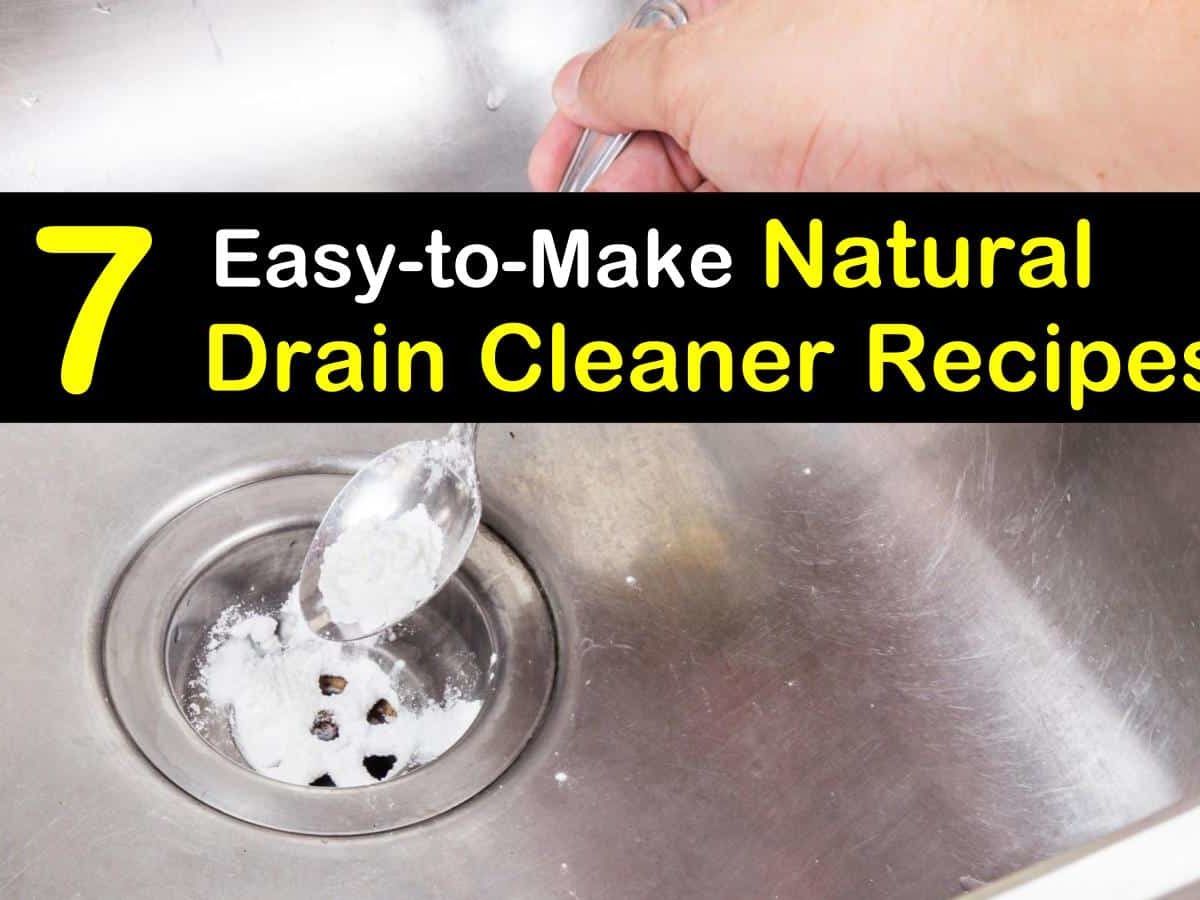Understanding the Importance of Natural Drain Cleaning Methods
Maintaining a clean and functional bathroom sink drain is essential for the overall hygiene and functionality of your bathroom. Clogged drains can lead to unpleasant odors, slow drainage, and even potential water damage. While there are numerous chemical drain cleaners available on the market, opting for natural drain cleaning methods is not only better for the environment but also safer for your health. Let’s discuss the importance of natural drain cleaning methods and provide you with practical tips to ensure a clean and clog-free bathroom sink drain.
- Avoid Harmful Chemicals: Chemical drain cleaners often contain harsh ingredients that can damage your pipes and pose health risks. Natural drain cleaning methods, on the other hand, utilize non-toxic ingredients that are safe to use and won’t harm the environment.
- Effective Removal of Buildup: Natural drain cleaning methods, such as using a mixture of baking soda and vinegar or a combination of salt and hot water, are highly effective in breaking down and removing stubborn buildup in your bathroom sink drain. These natural solutions work by dissolving grease, hair, and other debris without causing any harm to your pipes.
- Eco-Friendly Approach: By opting for natural drain cleaning methods, you contribute to a cleaner and healthier environment. Unlike chemical drain cleaners, which can contaminate water sources and harm aquatic life, natural methods are eco-friendly and sustainable.
- Cost-Effective Solution: Natural drain cleaning methods are not only safer and better for the environment, but they are also more cost-effective in the long run. Most natural drain cleaners can be made using common household items, saving you money on expensive chemical products.
- Prevention of Future Clogs: Regularly using natural drain cleaning methods can help prevent future clogs in your bathroom sink drain. By incorporating simple practices like using drain screens, avoiding the disposal of grease or large food particles, and periodically flushing the drain with hot water, you can significantly reduce the risk of clogs.
- Healthier Living Environment: A clean and well-maintained bathroom sink drain promotes a healthier living environment. Clogged drains can harbor bacteria, mold, and unpleasant odors, which can negatively impact your overall well-being. Natural drain cleaning methods not only keep your drains clear but also ensure a clean and hygienic bathroom.
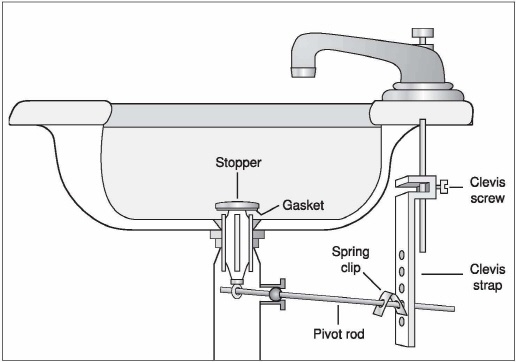
Effective Ways to Clear Clogs and Debris from Your Bathroom Sink Drain
A clogged bathroom sink drain can be a frustrating problem to deal with. The accumulation of hair, soap residue, and other debris can lead to slow drainage or even a complete blockage. We will explore some effective ways to clear clogs and debris from your bathroom sink drain, helping you maintain a smoothly functioning plumbing system.
Use a Plunger: One of the simplest and most effective tools for clearing clogged drains is a plunger. Start by covering the overflow drain with a wet cloth or towel to create a seal. Place the plunger over the drain and push it up and down vigorously for a few minutes. The suction created by the plunger can dislodge the clog and restore proper drainage.
Baking Soda and Vinegar: Another natural and effective method for clearing clogs is by using a combination of baking soda and vinegar. Start by pouring a cup of baking soda down the drain, followed by a cup of vinegar. Let the mixture sit for about 30 minutes, allowing it to fizz and break down the clog. Afterward, flush the drain with hot water to wash away the debris.
Manual Removal: If the clog is visible and within reach, you can try manually removing it. Start by removing the sink stopper or drain cover. Use a pair of long tweezers or a wire hanger bent into a hook shape to fish out any hair or debris that may be causing the clog. Be gentle and avoid damaging the drain pipe.
Chemical Drain Cleaners: Chemical drain cleaners can be effective in clearing clogs, but they should be used with caution. These products are often harsh and can damage your pipes if used improperly. Follow the instructions carefully, and avoid mixing different types of drain cleaners. It’s also essential to wear gloves and eye protection when using chemical cleaners.
Natural Solutions to Keep Your Bathroom Sink Drain Smelling Fresh
A foul-smelling bathroom sink drain can be unpleasant and embarrassing. The buildup of bacteria, mold, and organic matter can lead to unpleasant odors emanating from your drain. We will explore natural solutions to keep your bathroom sink drain smelling fresh, allowing you to enjoy a clean and pleasant-smelling bathroom.
Hot Water and Dish Soap: One of the simplest and most effective ways to eliminate odors from your bathroom sink drain is by using hot water and dish soap. Start by running hot water down the drain for a few minutes to flush out any debris. Then, pour a tablespoon of dish soap down the drain and let it sit for a few minutes. Finally, run hot water again to rinse away any remaining soap residue.
Baking Soda and Lemon Juice: Baking soda and lemon juice are natural deodorizers that can effectively eliminate odors from your bathroom sink drain. Start by pouring half a cup of baking soda down the drain, followed by half a cup of lemon juice. Allow the mixture to sit for about an hour, allowing it to neutralize odors. Finally, flush the drain with hot water to wash away any remaining residue.
Vinegar and Essential Oils: Vinegar is another excellent natural deodorizer that can effectively eliminate odors from your bathroom sink drain. Mix equal parts of vinegar and water in a spray bottle and add a few drops of your favorite essential oil for a pleasant scent. Spray the mixture down the drain and let it sit for about 15 minutes. Finally, flush the drain with hot water to rinse away any residue.
Regular Cleaning: Regular cleaning is essential to prevent the buildup of odor-causing bacteria and organic matter in your bathroom sink drain. Once a week, pour a cup of baking soda down the drain, followed by a cup of vinegar. Let the mixture sit for about 30 minutes before flushing it with hot water. This routine maintenance will help keep your drain smelling fresh and clean.
Tips and Tricks to Avoid Clogged Drains in the Future
Preventing clogged drains in your bathroom sink is much easier and cost-effective than dealing with the hassle of clearing them. By implementing some simple preventive measures, you can avoid the inconvenience and potential damage caused by clogs. Here are several tips and tricks to help you avoid clogged drains in the future.
Use Sink Strainers: Installing sink strainers is an effective way to prevent debris, hair, and other small objects from going down the drain. These inexpensive devices fit over the drain opening and catch any potential clog-causing materials. Regularly clean the strainers to ensure they are free from buildup.
Avoid Pouring Grease and Oil Down the Drain: Grease and oil can solidify and cause clogs in your drain pipes. Avoid pouring them down the drain and instead dispose of them in a separate container. Allow the grease to solidify before discarding it in the trash.
Regularly Remove Hair: Hair is one of the primary causes of clogged bathroom sink drains. Make it a habit to remove hair from the sink stopper or drain cover after each use. Use a pair of tweezers or a small brush to dislodge and discard any hair that may have accumulated.
Flush with Hot Water: To prevent the buildup of soap residue and other debris, flush your bathroom sink drain with hot water regularly. Run hot water down the drain for a few minutes at least once a week. This will help keep the drain pipes clear and prevent clogs from forming.
Exploring Sustainable Alternatives for a Cleaner Bathroom Sink Drain
When it comes to keeping your bathroom sink drain clean and functioning optimally, it’s essential to consider eco-friendly options. Chemical drain cleaners can be harmful to the environment and your plumbing system. We will explore sustainable alternatives for cleaning your bathroom sink drain, allowing you to maintain a cleaner and greener home.
Baking Soda and Vinegar: Baking soda and vinegar are versatile and eco-friendly ingredients that can effectively clean your bathroom sink drain. Start by pouring half a cup of baking soda down the drain, followed by half a cup of vinegar. Allow the mixture to sit for about 30 minutes, allowing it to break down any debris and eliminate odors. Finally, flush the drain with hot water.
Enzyme-based Drain Cleaners: Enzyme-based drain cleaners are a safe and eco-friendly option for maintaining a clean bathroom sink drain. These cleaners use natural enzymes to break down organic matter, such as hair and soap residue, without harming the environment or your plumbing system. Follow the instructions provided by the manufacturer for optimal results.
Manual Cleaning Tools: Instead of relying on chemical-laden products, consider using manual cleaning tools to remove debris from your bathroom sink drain. A drain snake or a pipe brush can effectively dislodge and remove hair, soap scum, and other buildup. Regularly clean your drain using these tools to maintain a cleaner and greener drain.
Regular Maintenance: Preventive maintenance is key to eco-friendly drain cleaning. Implementing the tips mentioned in the previous article, such as using sink strainers, avoiding pouring grease down the drain, and regularly removing hair, will help prevent clogs and maintain a cleaner drain. By being proactive, you can reduce the need for harsh chemical cleaners.
How to Unclog a Bathroom Sink
Simple Ways to Clean a Bathroom Sink Drain
How to Remove a Sink Stopper – Mother Daughter Projects
Get Rid of Clogged Sinks–Naturally! Unclog bathroom sinks, Sink
Natural Drain Cleaner
Related Posts:
- How Much To Install Bathroom Sink
- Bathroom Sink Furniture Vanity
- Bathroom Sink Repair Kit
- How To Open A Clogged Bathroom Sink Drain
- How To Build A Bathroom Sink Cabinet
- Bathroom Sink Sprayer
- Bathroom Sink Clogged Beyond Trap
- Ceramic Vessel Bathroom Sinks
- How To Install A New Bathroom Sink
- How To Fix Bathroom Sink Drain Pipe

